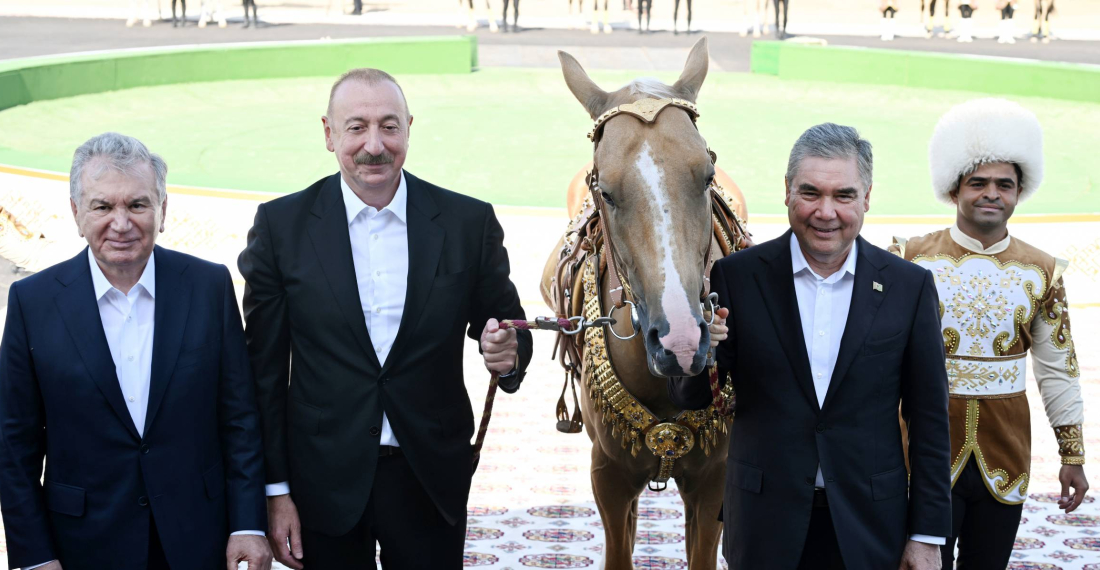The presidents of Azerbaijan and Uzbekistan did not leave Turkmenistan empty handed, after their visit to the country earlier this week.
On August 22, President of the Republic of Azerbaijan Ilham Aliyev, Chairman of the People's Council of Turkmenistan Gurbanguly Berdimuhamedov, and President of the Republic of Uzbekistan Shavkat Mirziyoyev watched the performance of the "Akhalteke" horses and the national "Galkynysh" equestrian group in the city of Turkmenbashi.
Then, on behalf of the President of Turkmenistan, Sardar Berdimuhamedov and the Turkmen people, the Chairman of the People's Council of Turkmenistan, Gurbanguly Berdimuhamedov, presented Aliyev with an Akhal-Teke horse nicknamed "Taus".
Later, Berdimuhamedov presented a camel to Shavkat Mirziyoyev.
source: commonspace.eu with agencies
photo: On 22 August, the Chairman of the People's Council of Turkmenistan, Gurbanguly Berdimuhamedov, presented president Ilham Aliyev of Azerbaijan with an Akhal-Teke horse nicknamed "Taus". (picture courtesy of the press service of the president of Azerbaijan).







